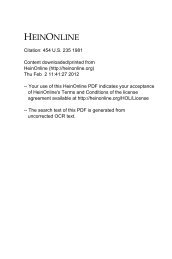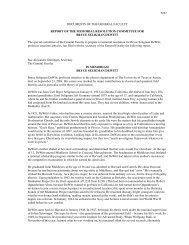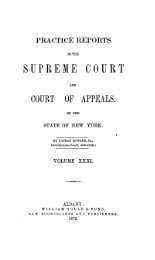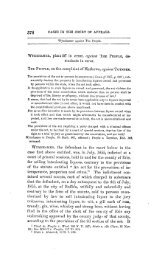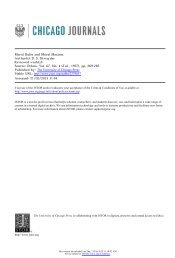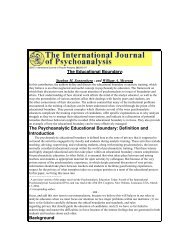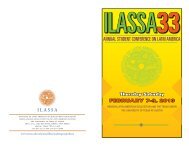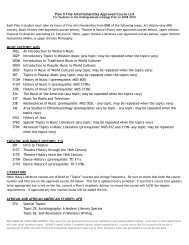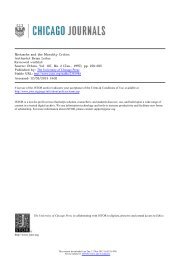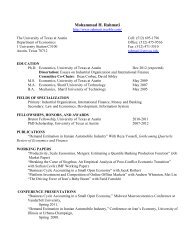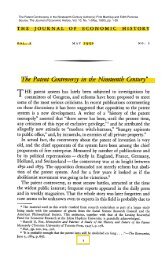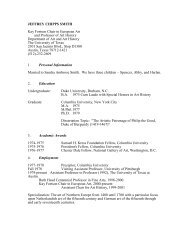Copyright by Gregory Krauss 2007 - The University of Texas at Austin
Copyright by Gregory Krauss 2007 - The University of Texas at Austin
Copyright by Gregory Krauss 2007 - The University of Texas at Austin
You also want an ePaper? Increase the reach of your titles
YUMPU automatically turns print PDFs into web optimized ePapers that Google loves.
ights suddenly became a major U.S. foreign policy concern, Lister was already<br />
nearing retirement age. <strong>The</strong> human rights issue emerged just in time to open up a new<br />
chapter in his career, a chapter in which he would make a gre<strong>at</strong>er impact than <strong>at</strong> any<br />
previous time.<br />
Between 1973 and 2002, Lister would devote his career almost entirely to<br />
human rights issues. Many <strong>of</strong> his contributions were made over the course <strong>of</strong> one or<br />
two decades, and for this reason I have chosen to address the period as a whole. <strong>The</strong><br />
following discussion begins with background on the development <strong>of</strong> human rights in<br />
U.S. foreign policy and on George Lister’s human rights career. <strong>The</strong> remainder <strong>of</strong> the<br />
chapter looks <strong>at</strong> Lister’s role in institutionalizing human rights in the St<strong>at</strong>e<br />
Department and his impact on the human rights movement. In Chapter 5, I examine<br />
Lister’s contribution to human rights and democracy in several countries. Finally,<br />
Chapter 6 will <strong>of</strong>fer some theories as to why Lister was successful <strong>at</strong> human rights<br />
work and wh<strong>at</strong> lessons can be drawn from Lister’s example.<br />
Human Rights in U.S. Foreign Policy<br />
Emergence <strong>of</strong> the Issue<br />
Several factors converged in the early 1970s to make human rights issues a<br />
larger factor in U.S. foreign policy. In many L<strong>at</strong>in American countries, including<br />
Chile, Argentina, Brazil, and Uruguay, military dict<strong>at</strong>orships were replacing<br />
democr<strong>at</strong>ically-elected governments. 4 Freedom <strong>of</strong> speech in these countries was<br />
56



